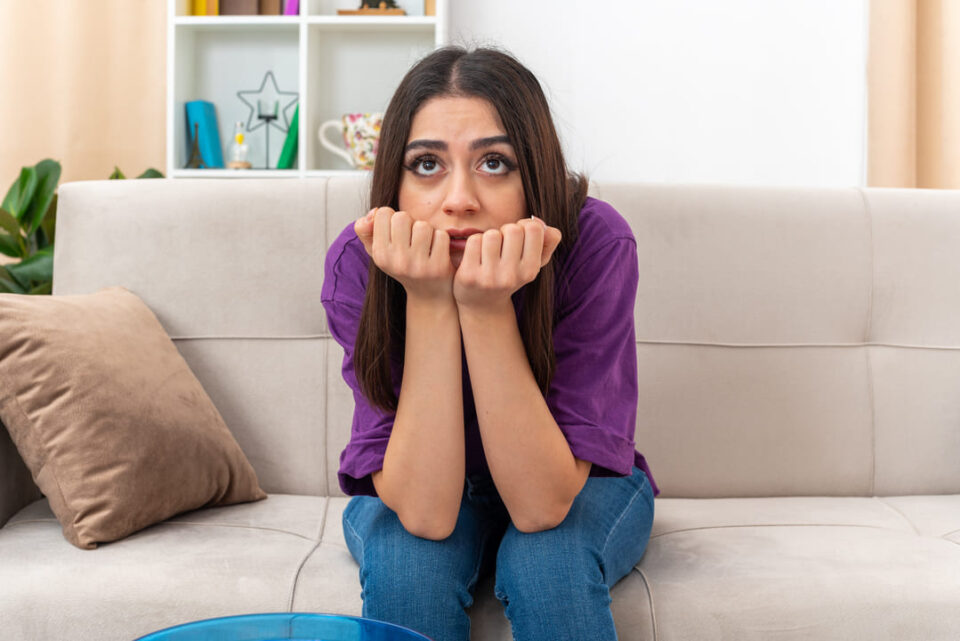I’ve seen anxiety up close: in my patient’s eyes, in their trembling hands, and in the way they speak, fast and breathless, as if trying to outrun their thoughts. As an Ayurvedic physician, I’ve spent years prescribing natural remedies to ease this modern plague. And time and again, I’ve come back to one herb: Ashwagandha.
Ashwagandha—the name rolls off the tongue like magic. It’s been used in India for over 3,000 years, and modern science is catching up to what ancient healers knew.
What is Ashwagandha?
A small shrub with oval leaves and bell-shaped flowers. This unassuming plant, native to India, packs a powerful punch. Its roots and berries have been used in Ayurvedic medicine for millennia. Why? Because Ashwagandha is an adaptogen. It helps the body adapt to stress.
But how does it work? The secret lies in its active compounds. Withanolides, like withaferin A and withanolide D, are the stars of the show. These phytosteroids dampen our stress response. They’re like a gentle hand on the shoulder of our nervous system, saying, “Hey, it’s okay. You can relax now.”
The Anxiety Epidemic
Let’s talk about anxiety. It’s more than worry. It’s a persistent, gnawing fear that can paralyze. Over 40 million American adults struggle with anxiety disorders. Globally, that number jumps to 284 million. It’s an epidemic of unease.
Conventional treatments have their place, but they have side effects and don’t address the root cause—it’s like putting a band-aid on a broken bone.
That’s where Ashwagandha comes in.
The Research
I’ve pored over the studies. I’ve analyzed the data. And the results are compelling.
One study caught my eye. It was a gold-standard trial from 2019. Sixty-four adults with generalized anxiety disorder took 300mg of ashwagandha extract twice daily. After 12 weeks, their anxiety scores improved by 56.5% more than the placebo group’s. That’s not just statistically significant—it’s life-changing.
But it’s not just one study. A meta-analysis from 2022 looked at 27 randomized controlled trials with over 2,500 participants. The conclusion is that Ashwagandha reliably reduces anxiety while boosting overall mental health.
How to Use Ashwagandha
How can you harness the power of this ancient herb? Here’s what I recommend to my patients.
For general anxiety support
– Root extract: 300-600mg daily
– Whole root powder: 1,000-2,000mg daily
For situational support (like before a big presentation)
– Root extract: 600-1200mg
– Root powder: 2,000-4,000mg
Start low and go slow. Give it time. Most people see benefits within 8-12 weeks, but some notice changes within 1-2 weeks.
Beyond the Herb
But here’s the thing. Ashwagandha is a powerful ally in a holistic approach to anxiety management. Here’s what else I tell my patients.
1. Move your body. Regular exercise is nature’s anti-anxiety medicine.
2. Breathe. Practice yoga or meditation to retrain your nervous system.
3. Sleep. Aim for 7-9 hours a night. Your brain needs rest to reset.
4. Eat well. More veggies, less sugar. Nourish your gut-brain connection.
5. Connect. Spend time in nature. Foster relationships. We’re social creatures.
The Path to Inner Peace
I’ve seen it happen. Patients who come to me wound tight as springs leave with a newfound calm. It’s not just the Ashwagandha. It’s the comprehensive approach, the lifestyle changes, and the commitment to self-care.
Anxiety doesn’t have to rule your life. You have more power than you know. Ashwagandha can help unlock that power, a step toward inner peace.
Take a deep breath. Feel your feet on the ground. And know that with the right tools, you can find your way back to balance—back to yourself.


1 comment
[…] the signs of chronic stress and anxiety, I introduced Arundhati to Ashwagandha, an ancient herb with a long history of use in Ayurvedic medicine. I explained that Ashwagandha is an adaptogen, […]